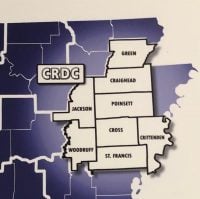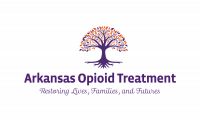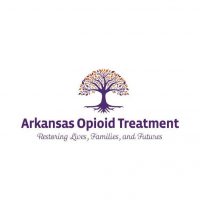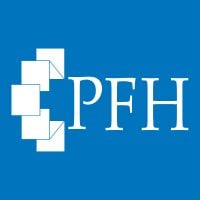Crowley's Ridge Development Council
Drug Rehab Center in Jonesboro, Arkansas
Crowley’s Ridge Development Council is a non-profit behavioral healthcare organization in Jonesboro, Arkansas that offers an array of mental health and substance abuse programs, ranging from education and prevention to residential and vocational programs.
About This Arkansas Facility
Crowley’s Ridge Development Council (CRDC) is a non-profit behavioral healthcare organization based in Jonesboro, Arkansas. Established in 1971, their mission is to “promote the physical, mental, and social wellness of the people and communities of Northeast Arkansas” through a variety of services and programs. At CRDC, they offer an array of mental health and substance abuse programs, ranging from education and prevention to outpatient treatment. In addition to individual and group counseling, CRDC also offers comprehensive residential and vocational programs.
At CRDC, clients with addiction and substance abuse issues will find services such as evidence-based treatment plans, medication-assisted treatment (MAT), trauma-informed care, and aftercare resources. Treatment team members at CRDC work to foster a supportive environment where individuals are encouraged to explore the physical, psychological, and social aspects of their addiction and develop effective coping skills. In addition to addiction treatment, CRDC also provides family therapy for clients and their loved ones, as well as educational classes focused on relapse prevention and sober living.
CRDC is fully accredited by the Commission on Accreditation of Rehabilitation Facilities (CARF) and has received the Distinguished Service Award from the National Council on Alcoholism and Drug Dependence. They are also recognized by the Arkansas Department of Mental Health and Substance Abuse as a “Preferred Treatment Provider.” With a commitment to providing high-quality services, CRDC strives to help individuals work through their substance abuse issues and attain increased self-esteem and overall wellbeing.
Genders
Ages
Modality
Additional
Accreditations

CARF
The Commission on Accreditation of Rehabilitation Facilities (CARF) is a non-profit organization that specifically accredits rehab organizations. Founded in 1966, CARF's, mission is to help service providers like rehab facilities maintain high standards of care.
Conditions and Issues Treated
People who abuse drugs are likely to suffer from an addiction, which can cause serious health problems. When it comes to helping drug abusers get sober, there are many options to choose from. It is essential to state that there is no “”correct”” way of doing things. People are different, and they need different types of help to get over their addiction.
Many people who struggle with opioid addiction need to attend specific programs like methadone , Suboxone or Vivitrol clinics.
These types of programs will provide the patient with legal, prescription medications that can help them overcome their cravings for illegal opioids like heroin or fentanyl . If the patient has a chronic condition like Hepatitis C, they must undergo treatment before they can begin taking these medications.
Levels of Care Offered at Crowley's Ridge Development Council
This center offers a variety of custom treatment tailored to individual recovery. Currently available are Detox, Drug Rehab, Inpatient, Intensive Outpatient, Outpatient, Residential, Sober-Living / Half-Way, with additional therapies available as listed below.
An addict may have to go through alcohol or drug withdrawal. While detox may be uncomfortable, it is not life-threatening. Detoxification allows the addict to rid the body of all traces of drugs or alcohol and gives the addict a clean slate for their recovery. In an inpatient or outpatient setting, detox can be managed medically.
Individuals who are suffering from severe addiction or have a high risk for dangerous health concerns are often recommended to receive inpatient treatment.
Choosing to enter an inpatient treatment program is beneficial for people who are suffering from severe addiction, or who have a high risk for dangerous health concerns.
Inpatient treatment is beneficial for:
- People who have a history of severe withdrawal.
- People who have attempted to overcome addiction on their own without success.
- People who have a history of relapse, or have recently relapsed.
- People at risk for drug overdose or withdrawal-related complications.
- People with medical conditions that are worsened by drug or alcohol use.
Outpatient addiction treatment is beneficial for people who are able to function well in their day-to-day lives. It is recommended for people who are not yet ready to end their relationships with friends or family members who might be encouraging drug and alcohol use.
Intensive outpatient treatment is beneficial for:
- People who are able to attend treatment more than 3 times per week.
- People who do not meet the criteria for inpatient treatment.
- People who are able to contribute to their own recovery outside of the treatment center.
- People who are motivated towards recovery.
- People who are able to overcome addiction on their own without the need for higher levels of care.
Outpatient treatment programs provide drug and alcohol addiction treatment through individual sessions with a counselor, group therapy, 12-step meetings, and other activities to help individuals gain sober living skills. Most programs are designed for those individuals who have completed a medically supervised detoxification program and provide opportunities for clients to begin the process of early recovery.
Outpatient programs also offer a level of medical support as needed and psychological backing through therapy. Clients are encouraged to live at home, though there may be some flexibility regarding this requirement based on the circumstances and needs of each patient.
Outpatient treatment is perhaps the most common type of dual diagnosis program available. It does not pose a significant financial burden on patients. However, it is essential to note that outpatient treatment does not provide the support and supervision given in residential programs. Some addicts may need this level of support to maintain their sobriety.
Sober Living Home (SLH) is a term used to describe houses where people recovering from addiction can stay. The goal of these places is to provide immediate support and protection that the addict needs and force them to live a life free from substance abuse.
SLH’s typically allow the addict to live there for 30, 60, or 90 days. This is intended to enable the addict time to develop a foundation of “sobriety,”; allowing them to adjust to living without the substance while building new life skills. During this time, addicts also typically attend regular addiction, education classes.
Residential treatment programs are those that offer housing and meals in addition to substance abuse treatment. Rehab facilities that offer residential treatment allow patients to focus solely on recovery, in an environment totally separate from their lives. Some rehab centers specialize in short-term residential treatment (a few days to a week or two), while others solely provide treatment on a long-term basis (several weeks to months). Some offer both, and tailor treatment to the patient’s individual requirements.
Therapies & Programs
Therapy sessions focused on the individual addict can provide much-needed guidance as they work toward overcoming their addiction. These types of sessions typically involve guidance from a therapist, who will help addicts identify and process their feelings and cravings.
During these sessions, addicts may develop plans for coping with the triggers that typically lead to relapse and learn how to avoid those triggers during their recovery process.
The main goal of family therapy for drug addiction is to create an environment where communication can occur without judgment, hostility, or blame that often occurs within a family.
Family therapy is a type of group problem-solving that aims to improve communication and relationships between the patient, their family, and sometimes friends. The therapist is with the family as they learn to communicate with each other differently, especially with the addict when s/he is using.
The family can learn to reduce their enabling behavior or rally together and support each other during tough times. The patient also learns how to deal with their addiction and maintain sobriety while interacting with the family.
Different types of addiction treatment services are available. Within this article, group therapy is of interest due to its high success rate compared to individual therapy. Group therapy settings are beneficial because they allow recovering addicts to build a strong support network.
Benefits of group therapy are:
- Reduces feelings of isolation
- Immediate access to social support in the form of fellow addicts in recovery
- Lowers risk of relapse
- Increases rate of sobriety
- Builds coping skills that can be applied to everyday life
Payment Options Accepted
For specific insurance or payment methods please contact us.
Additional Details
Specifics, location, and helpful extra information.
Jonesboro, Arkansas 72401 Phone Number(870) 932-0228 Meta DetailsUpdated November 25, 2023
Staff Verified
Patient Reviews
There are no reviews yet. Be the first one to write one.
Jonesboro, Arkansas Addiction Information
Arkansas has one of the highest rates of substance abuse and addiction in the nation for drug overdoses. Methamphetamines and prescription opioids are by far the most widely abused drugs in the state. Despite the high rates, Arkansas ranked only 25th in the for drug overdose deaths in 2013.
Approximately 8% of the Jonesboro, Arkansas, population struggles with addiction to drugs or alcohol. From 1999 to 2016, the number of drug overdose deaths increased by 644%. The city has a high rate of prescription drug abuse, with nearly 7% of residents using painkillers for non-medical reasons. Drug treatment in Jonesboro, Arkansas, can be voluntary or court-ordered, and it may be Inpatient or Outpatient. Most programs last from 30 to 90 days.
Treatment in Nearby Cities
- Paris, AR (178.5 mi.)
- Ash Flat, AR (62.4 mi.)
- Marianna, AR (71.8 mi.)
- Osceola, AR (37.2 mi.)
- Lamar, AR (157.6 mi.)
Centers near Crowley's Ridge Development Council
The facility name, logo and brand are the property and registered trademarks of Crowley's Ridge Development Council, and are being used for identification and informational purposes only. Use of these names, logos and brands shall not imply endorsement. RehabNow.org is not affiliated with or sponsored by Crowley's Ridge Development Council.






